I am writing a boring application to manage patients and their clinic history. I used SQLite combined with DbLinq libraries and DbMetal code generation utility. Here are two classes from the genereated code extracted from the underlying database:
[Table(Name="main.Patients")]
public partial class Patient : System.ComponentModel.INotifyPropertyChanging, System.ComponentModel.INotifyPropertyChanged
{
private static System.ComponentModel.PropertyChangingEventArgs emptyChangingEventArgs = new System.ComponentModel.PropertyChangingEventArgs("");
private long _birthday;
private string _firstName;
private int _hasChildren;
private System.Nullable<int> _id;
private int _isMarried;
private string _lastName;
private string _profession;
private EntitySet<ClinicCase> _clinicCases;
private EntitySet<PatientAddress> _patientsAddresses;
private EntitySet<PatientPhoneNumber> _patientsPhoneNumbers;
#region Extensibility Method Declarations
partial void OnCreated();
partial void OnBirthdayChanged();
partial void OnBirthdayChanging(long value);
partial void OnFirstNameChanged();
partial void OnFirstNameChanging(string value);
partial void OnHasChildrenChanged();
partial void OnHasChildrenChanging(int value);
partial void OnIDChanged();
partial void OnIDChanging(System.Nullable<int> value);
partial void OnIsMarriedChanged();
partial void OnIsMarriedChanging(int value);
partial void OnLastNameChanged();
partial void OnLastNameChanging(string value);
partial void OnProfessionChanged();
partial void OnProfessionChanging(string value);
#endregion
public Patient()
{
_clinicCases = new EntitySet<ClinicCase>(new Action<ClinicCase>(this.ClinicCases_Attach), new Action<ClinicCase>(this.ClinicCases_Detach));
_patientsAddresses = new EntitySet<PatientAddress>(new Action<PatientAddress>(this.PatientsAddresses_Attach), new Action<PatientAddress>(this.PatientsAddresses_Detach));
_patientsPhoneNumbers = new EntitySet<PatientPhoneNumber>(new Action<PatientPhoneNumber>(this.PatientsPhoneNumbers_Attach), new Action<PatientPhoneNumber>(this.PatientsPhoneNumbers_Detach));
this.OnCreated();
}
[Column(Storage="_birthday", Name="Birthday", DbType="integer", AutoSync=AutoSync.Never, CanBeNull=false)]
[DebuggerNonUserCode()]
public long BirthdayBinaryDate
{
get
{
return this._birthday;
}
set
{
if ((_birthday != value))
{
this.OnBirthdayChanging(value);
this.SendPropertyChanging();
this._birthday = value;
this.SendPropertyChanged("Birthday");
this.OnBirthdayChanged();
}
}
}
[Column(Storage="_firstName", Name="FirstName", DbType="text", AutoSync=AutoSync.Never, CanBeNull=false)]
[DebuggerNonUserCode()]
public string FirstName
{
get
{
return this._firstName;
}
set
{
if (((_firstName == value)
== false))
{
this.OnFirstNameChanging(value);
this.SendPropertyChanging();
this._firstName = value;
this.SendPropertyChanged("FirstName");
this.OnFirstNameChanged();
}
}
}
[Column(Storage="_hasChildren", Name="HasChildren", DbType="integer", AutoSync=AutoSync.Never, CanBeNull=false)]
[DebuggerNonUserCode()]
public int HasChildren
{
get
{
return this._hasChildren;
}
set
{
if ((_hasChildren != value))
{
this.OnHasChildrenChanging(value);
this.SendPropertyChanging();
this._hasChildren = value;
this.SendPropertyChanged("HasChildren");
this.OnHasChildrenChanged();
}
}
}
[Column(Storage="_id", Name="ID", DbType="integer", IsPrimaryKey=true, IsDbGenerated=true, AutoSync=AutoSync.OnInsert)]
[DebuggerNonUserCode()]
public System.Nullable<int> ID
{
get
{
return this._id;
}
set
{
if ((_id != value))
{
this.OnIDChanging(value);
this.SendPropertyChanging();
this._id = value;
this.SendPropertyChanged("ID");
this.OnIDChanged();
}
}
}
[Column(Storage="_isMarried", Name="IsMarried", DbType="integer", AutoSync=AutoSync.Never, CanBeNull=false)]
[DebuggerNonUserCode()]
public int IsMarried
{
get
{
return this._isMarried;
}
set
{
if ((_isMarried != value))
{
this.OnIsMarriedChanging(value);
this.SendPropertyChanging();
this._isMarried = value;
this.SendPropertyChanged("IsMarried");
this.OnIsMarriedChanged();
}
}
}
[Column(Storage="_lastName", Name="LastName", DbType="text", AutoSync=AutoSync.Never, CanBeNull=false)]
[DebuggerNonUserCode()]
public string LastName
{
get
{
return this._lastName;
}
set
{
if (((_lastName == value)
== false))
{
this.OnLastNameChanging(value);
this.SendPropertyChanging();
this._lastName = value;
this.SendPropertyChanged("LastName");
this.OnLastNameChanged();
}
}
}
[Column(Storage="_profession", Name="Profession", DbType="text", AutoSync=AutoSync.Never)]
[DebuggerNonUserCode()]
public string Profession
{
get
{
return this._profession;
}
set
{
if (((_profession == value)
== false))
{
this.OnProfessionChanging(value);
this.SendPropertyChanging();
this._profession = value;
this.SendPropertyChanged("Profession");
this.OnProfessionChanged();
}
}
}
#region Children
[Association(Storage="_clinicCases", OtherKey="PatientID", ThisKey="ID", Name="fk_ClinicCases_0")]
[DebuggerNonUserCode()]
public EntitySet<ClinicCase> ClinicCases
{
get
{
return this._clinicCases;
}
set
{
this._clinicCases = value;
}
}
[Association(Storage="_patientsAddresses", OtherKey="PatientID", ThisKey="ID", Name="fk_PatientsAddresses_0")]
[DebuggerNonUserCode()]
public EntitySet<PatientAddress> Addresses
{
get
{
return this._patientsAddresses;
}
set
{
this._patientsAddresses = value;
}
}
[Association(Storage="_patientsPhoneNumbers", OtherKey="PatientID", ThisKey="ID", Name="fk_PatientsPhoneNumbers_0")]
[DebuggerNonUserCode()]
public EntitySet<PatientPhoneNumber> PhoneNumbers
{
get
{
return this._patientsPhoneNumbers;
}
set
{
this._patientsPhoneNumbers = value;
}
}
#endregion
public event System.ComponentModel.PropertyChangingEventHandler PropertyChanging;
public event System.ComponentModel.PropertyChangedEventHandler PropertyChanged;
protected virtual void SendPropertyChanging()
{
System.ComponentModel.PropertyChangingEventHandler h = this.PropertyChanging;
if ((h != null))
{
h(this, emptyChangingEventArgs);
}
}
protected virtual void SendPropertyChanged(string propertyName)
{
System.ComponentModel.PropertyChangedEventHandler h = this.PropertyChanged;
if ((h != null))
{
h(this, new System.ComponentModel.PropertyChangedEventArgs(propertyName));
}
}
#region Attachment handlers
private void ClinicCases_Attach(ClinicCase entity)
{
this.SendPropertyChanging();
entity.Patient = this;
}
private void ClinicCases_Detach(ClinicCase entity)
{
this.SendPropertyChanging();
entity.Patient = null;
}
private void PatientsAddresses_Attach(PatientAddress entity)
{
this.SendPropertyChanging();
entity.Patient = this;
}
private void PatientsAddresses_Detach(PatientAddress entity)
{
this.SendPropertyChanging();
entity.Patient = null;
}
private void PatientsPhoneNumbers_Attach(PatientPhoneNumber entity)
{
this.SendPropertyChanging();
entity.Patient = this;
}
private void PatientsPhoneNumbers_Detach(PatientPhoneNumber entity)
{
this.SendPropertyChanging();
entity.Patient = null;
}
#endregion
}
[Table(Name="main.PatientsAddresses")]
public partial class PatientAddress : System.ComponentModel.INotifyPropertyChanging, System.ComponentModel.INotifyPropertyChanged
{
private static System.ComponentModel.PropertyChangingEventArgs emptyChangingEventArgs = new System.ComponentModel.PropertyChangingEventArgs("");
private string _address;
private string _domicileStatus;
private System.Nullable<int> _patientID;
private EntityRef<Patient> _patients = new EntityRef<Patient>();
#region Extensibility Method Declarations
partial void OnCreated();
partial void OnAddressChanged();
partial void OnAddressChanging(string value);
partial void OnDomicileStatusChanged();
partial void OnDomicileStatusChanging(string value);
partial void OnPatientIDChanged();
partial void OnPatientIDChanging(System.Nullable<int> value);
#endregion
public PatientAddress()
{
this.OnCreated();
}
[Column(Storage="_address", Name="Address", DbType="text", IsPrimaryKey=true, AutoSync=AutoSync.Never)]
[DebuggerNonUserCode()]
public string Address
{
get
{
return this._address;
}
set
{
if (((_address == value)
== false))
{
this.OnAddressChanging(value);
this.SendPropertyChanging();
this._address = value;
this.SendPropertyChanged("Address");
this.OnAddressChanged();
}
}
}
[Column(Storage="_domicileStatus", Name="DomicileStatus", DbType="text", AutoSync=AutoSync.Never)]
[DebuggerNonUserCode()]
public string DomicileStatus
{
get
{
return this._domicileStatus;
}
set
{
if (((_domicileStatus == value)
== false))
{
this.OnDomicileStatusChanging(value);
this.SendPropertyChanging();
this._domicileStatus = value;
this.SendPropertyChanged("DomicileStatus");
this.OnDomicileStatusChanged();
}
}
}
[Column(Storage="_patientID", Name="PatientID", DbType="integer", IsPrimaryKey=true, IsDbGenerated=true, AutoSync=AutoSync.Never)]
[DebuggerNonUserCode()]
public System.Nullable<int> PatientID
{
get
{
return this._patientID;
}
set
{
if ((_patientID != value))
{
if (_patients.HasLoadedOrAssignedValue)
{
throw new System.Data.Linq.ForeignKeyReferenceAlreadyHasValueException();
}
this.OnPatientIDChanging(value);
this.SendPropertyChanging();
this._patientID = value;
this.SendPropertyChanged("PatientID");
this.OnPatientIDChanged();
}
}
}
#region Parents
[Association(Storage="_patients", OtherKey="ID", ThisKey="PatientID", Name="fk_PatientsAddresses_0", IsForeignKey=true)]
[DebuggerNonUserCode()]
public Patient Patient
{
get
{
return this._patients.Entity;
}
set
{
if (((this._patients.Entity == value)
== false))
{
if ((this._patients.Entity != null))
{
Patient previousPatients = this._patients.Entity;
this._patients.Entity = null;
previousPatients.Addresses.Remove(this);
}
this._patients.Entity = value;
if ((value != null))
{
value.Addresses.Add(this);
_patientID = value.ID;
}
else
{
_patientID = null;
}
}
}
}
#endregion
public event System.ComponentModel.PropertyChangingEventHandler PropertyChanging;
public event System.ComponentModel.PropertyChangedEventHandler PropertyChanged;
protected virtual void SendPropertyChanging()
{
System.ComponentModel.PropertyChangingEventHandler h = this.PropertyChanging;
if ((h != null))
{
h(this, emptyChangingEventArgs);
}
}
protected virtual void SendPropertyChanged(string propertyName)
{
System.ComponentModel.PropertyChangedEventHandler h = this.PropertyChanged;
if ((h != null))
{
h(this, new System.ComponentModel.PropertyChangedEventArgs(propertyName));
}
}
}
I use the following code to add an address to a patient:
PatientAddress address = new PatientAddress();
address.Address = txtAddress.Text;
address.DomicileStatus = cmbDomicileStatus.Text;
currentPatient.Addresses.Add(address);
Database.Source.PatientsAddresses.InsertOnSubmit(address);
Database.Source.SubmitChanges();
Database.Source is an instance of the class that extends DataContext in the generated code. On SubmitChanges, I receive this exception:
"Equal operator is not defined between Nullable(Of Int32) and Int32."
The message is not reported word by word, but the meaning is the same. The stack trace point to DbLinq code, more precisely to line 709 of source file DbLinq.Data.Linq.DataContext.cs. You can find the source files here: http://dblinq.codeplex.com/SourceControl/changeset/view/16800#314775 (under the body of the method SetEntityRefQueries(object entity)). I see that the problem comes when comparing a foreign key value with a constant in an expression tree, but I couln't manage to get other information on that. Can you help me find the issue?
N.B.: the field address.PatientID (foreign key) is actually set to the correct value before the invocation of SubmitChanges.

